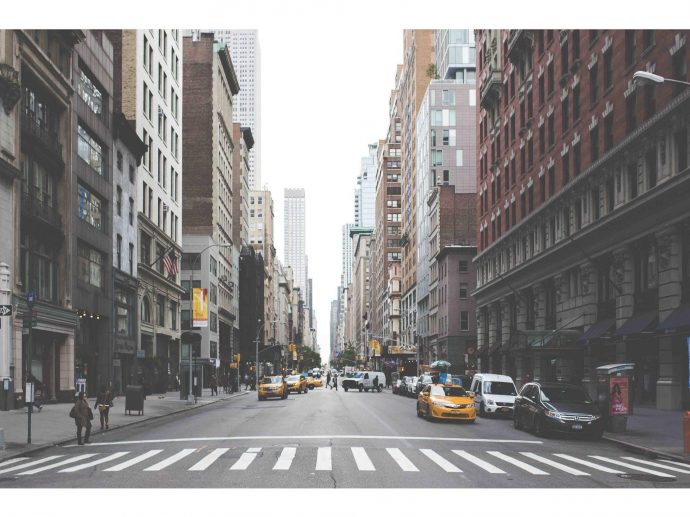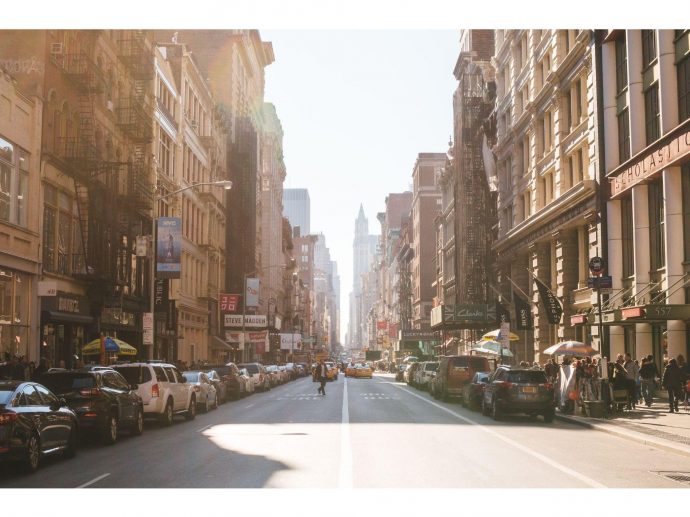Categories more
- Adventures (17)
- Arts / Collectables (15)
- Automotive (37)
- Aviation (11)
- Bath, Body, & Health (77)
- Children (6)
- Cigars / Spirits (32)
- Cuisine (16)
- Design/Architecture (22)
- Electronics (13)
- Entertainment (4)
- Event Planning (5)
- Fashion (46)
- Finance (9)
- Gifts / Misc (6)
- Home Decor (45)
- Jewelry (41)
- Pets (3)
- Philanthropy (1)
- Real Estate (16)
- Services (23)
- Sports / Golf (14)
- Vacation / Travel (60)
- Watches / Pens (15)
- Wines / Vines (24)
- Yachting / Boating (17)
NYC LL 87 - Energy Audits
Published
06/06/2023Local Law 87 (LL87) requires that buildings over 50,000 gross square feet undergo intensive energy audits and retro-commissioning in accordance with New York City's Greener, Greater Buildings Plan.
Compliance with LL87 can involve many costs, from filing fees and extension costs to amendment fees. On the other hand, compliance can mean significant savings in energy costs.
Buildings Over 50,000 Gross Square Feet
Owners of buildings over 50,000 square feet must measure and report energy benchmarking data using ENERGY STAR Portfolio Manager each year if the property exceeds 50k square feet; otherwise, there may be significant penalties imposed if compliance with "LL87" requirements is not met.
LL87 also requires buildings over 50,000 square feet to undergo an intensive energy audit and retro-commissioning measure every 10 years as part of the City's Greener, Greater Buildings Plan to give owners a deeper insight into their buildings' performance and ultimately promote healthy high-performance structures. You can visit this site for more information about LL87.
An energy professional will conduct an energy audit at your facility and conduct a comprehensive survey of all equipment in it, compiling their findings into an Energy Efficiency Report which is submitted online to NYC.
An energy efficiency report includes details on all systems within your building's operation as well as retro-commissioning projects to enhance system performance and reduce energy usage in general.
Compliance Dates
Building owners who fail to comply with LL87 risk significant fines and the potential loss of potential energy savings. Luckily, compliance can be achieved easily by engaging a qualified consultant - and should result in savings that far outstrip any associated audit, retro-commissioning, and other associated fees.
To comply, building owners must perform an energy audit on their base-building systems to identify opportunities for energy savings across lighting, HVAC, and other systems; followed by retro-commissioning studies designed to optimize these systems for maximum energy efficiency. The final step is submitting the EER to the Department of Buildings.
To comply with LL87, an energy auditor must prepare an EER and submit it by the deadline set by the NYC Department of Buildings. Your deadline for EER submission depends on the last digit of your tax block number.
Non-Compliance
Owners and co-op/condo boards ultimately bear the responsibility for meeting the inspection standard; however, they may delegate its administration to property managers. These managers would then hire and oversee consultants that perform energy auditing and retro-commissioning studies before submitting EER reports directly to DOB.
The city has created a benchmarking help center to provide free resources and technical assistance. The goal is to ensure LL 87 compliance. This help center includes free tools to collect and report data necessary for this process. Furthermore, several energy auditors and retro-commissioning professionals are on-hand to offer low-cost technical assistance services and services.
Energy audits and retro-commissioning can help building owners and operators improve building performance and reduce energy costs, with returns that range between 5- 15% annually on investment.
When combined with benchmarking, these measures are even more effective at lowering carbon footprints while often qualifying for tax rebates. As a result, it is imperative that building owners and operators hire a holistic provider that adheres to Local Law 87 compliance - initial filing fees start from $375 while additional charges apply for extension requests or amendments; it is a small price to pay to stay compliant and avoid expensive fines!
Fines
Property managers must strive to comply with local laws and ordinances, adhering to deadlines and avoiding fines as much as possible.
One such fine involves failing to abide by Local Law 87, the goal of which is to reduce energy waste, CO2 emissions, and business costs by informing owners how they can make their buildings more energy efficient. You can click the link: https://www.climate.gov/understanding-climate/climate-change-atmospheric-carbon-dioxide to learn more about Co2 emissions.
Under Energy Benchmarking Survey requirements, noncompliance can incur fines of $3,000 in its first year and $5K each subsequent year, in addition to having their construction permits rejected. To avoid incurring these steep penalties, building owners should comply with energy benchmarking surveys and submission deadlines.
There are numerous resources and services available to building owners who need assistance complying with local law eighty-seven, such as the NYC Benchmarking Help Center. These can help them collect the required data, identify cost-effective energy-saving strategies, and hire energy auditing and retro-commissioning professionals to optimize their buildings.
Local Law 87 is part of an array of legislation designed to reduce greenhouse gas emissions in New York City. This law is designed to help curb the disastrous effects of climate change and can provide financial incentives for compliance.
Professionals are available to assist building owners through this process. If you are unsure about your building’s needs, you can consult an expert online or visit the informational portal available to you.
















